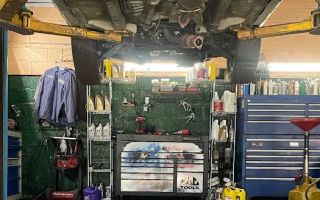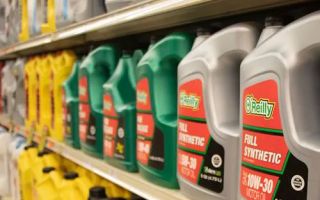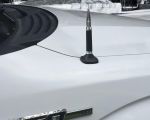- 1-what-fuel-tank-pressure-sensor-does
- 2-how-sensor-readings-affect-your-vehicle
- 3-common-signs-of-sensor-trouble
- 4-case-study-driver-experience
- 5-expert-analysis-of-diagnostic-codes
- 6-maintenance-tips-and-preventive-care
- 7-why-rescue-and-towing-can-help
What the Fuel Tank Pressure Sensor Does
The fuel tank pressure sensor is a small but critical component of your car’s EVAP system. It monitors the pressure inside the fuel tank, helping detect leaks or irregularities. When this sensor works properly, it ensures harmful vapors don’t escape and your engine maintains optimal performance.

Fuel 4
720 Tonnelle Ave, Jersey City, NJ 07307, USA
Why accuracy matters
Incorrect sensor readings can confuse your car’s computer, triggering unnecessary warnings or masking real problems. Understanding your car’s fuel tank pressure sensor readings gives you the power to act before minor issues turn major.
How Sensor Readings Affect Your Vehicle
Your car’s onboard diagnostic system relies on the sensor to maintain balance in the fuel system. If readings suggest a leak, the system may increase checks or even activate the check engine light. These readings influence fuel efficiency, emissions, and your car’s overall reliability.

Pick Your Part - Help Yourself
1232 Blinn Ave, Wilmington, CA 90744, USA
Practical example
For example, if the sensor detects pressure drops after refueling, it may indicate a loose gas cap. Though minor, this scenario often triggers a check engine light, showing just how sensitive and significant the sensor is.
Common Signs of Sensor Trouble
If your sensor fails, you may notice frequent check engine lights, poor fuel economy, or failed emissions tests. Drivers sometimes mistake these for bigger engine issues, but the real culprit is often the pressure sensor.
When to seek help
If problems persist, a diagnostic scan will usually show error codes like P0452 or P0453, both linked to fuel tank pressure sensor readings.
Case Study: A Driver’s Experience
In one case, a driver in Texas reported repeated check engine lights after every fill-up. After several frustrating trips to different garages, the issue was traced back to a faulty fuel tank pressure sensor. Replacing the sensor resolved the issue immediately, restoring confidence in the vehicle’s reliability.
Lesson learned
Sometimes what feels like a major problem can be solved by addressing this small but vital sensor.
Expert Analysis of Diagnostic Codes
Professional mechanics emphasize that reading error codes alone is not enough. For example, a P0452 code could mean a wiring issue, not the sensor itself. Context matters: combining code analysis with physical inspection ensures the right repair is made.
Professional insight
Experts recommend scanning codes, checking wiring, and testing voltage before assuming the sensor has failed. This avoids unnecessary replacements.
Maintenance Tips and Preventive Care
Keeping your gas cap tight, avoiding overfilling, and scheduling regular diagnostic scans helps preserve the fuel tank pressure sensor. Like many small parts, it benefits from clean connections and a healthy EVAP system.
Simple routines
Making these practices part of your maintenance routine keeps both your car and your wallet safe from surprise repairs.
Why Rescue & Towing Can Help
If you face recurring sensor issues, Rescue & Towing can connect you with reliable diagnostic services, parts, and professional support. Whether it’s replacing a faulty sensor, interpreting error codes, or ensuring your EVAP system works perfectly, they provide trustworthy recommendations tailored to your needs.
Peace of mind for every driver
With expert help from Rescue & Towing, you can drive confidently, knowing your vehicle’s fuel system is in top condition.





























